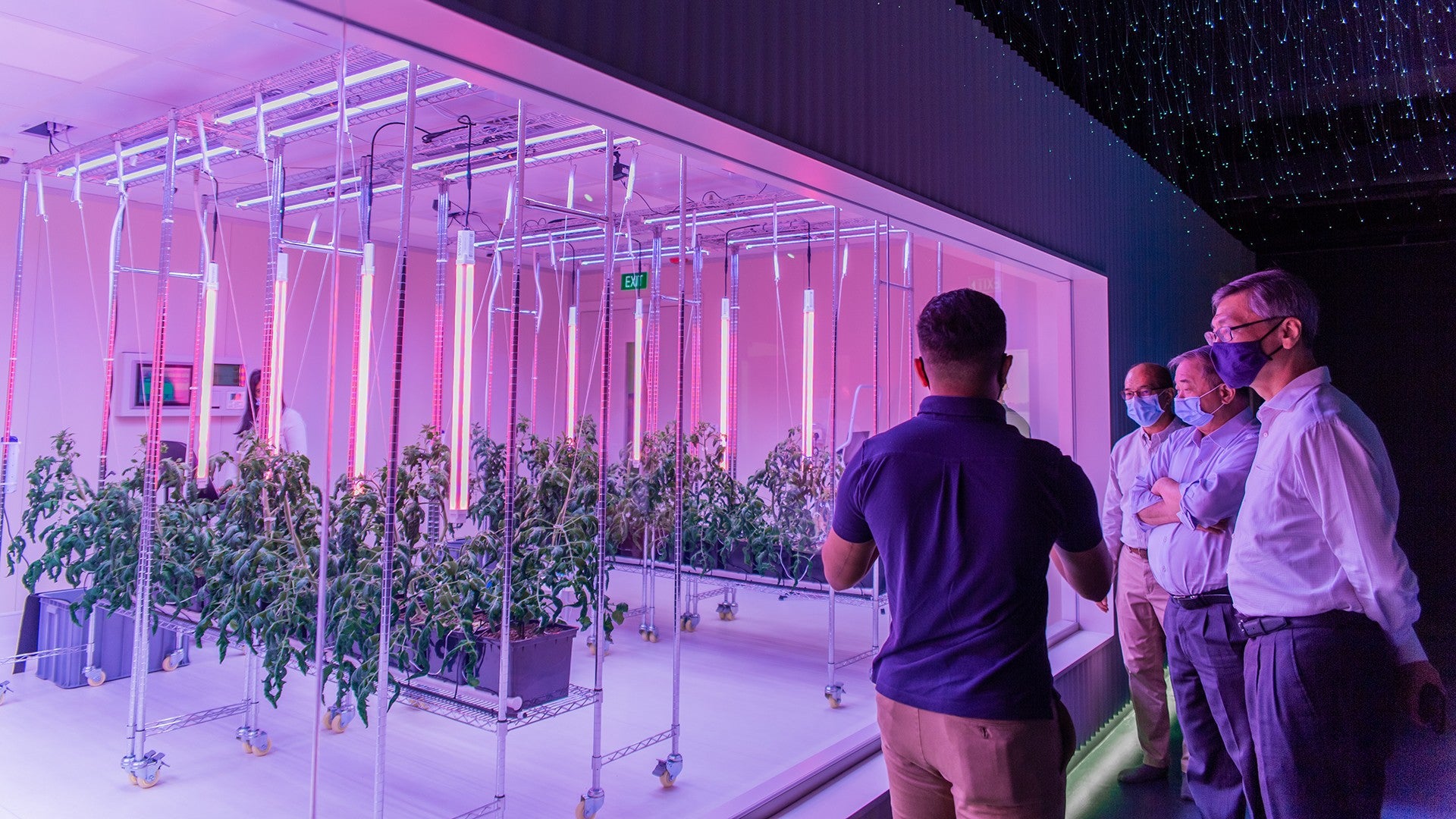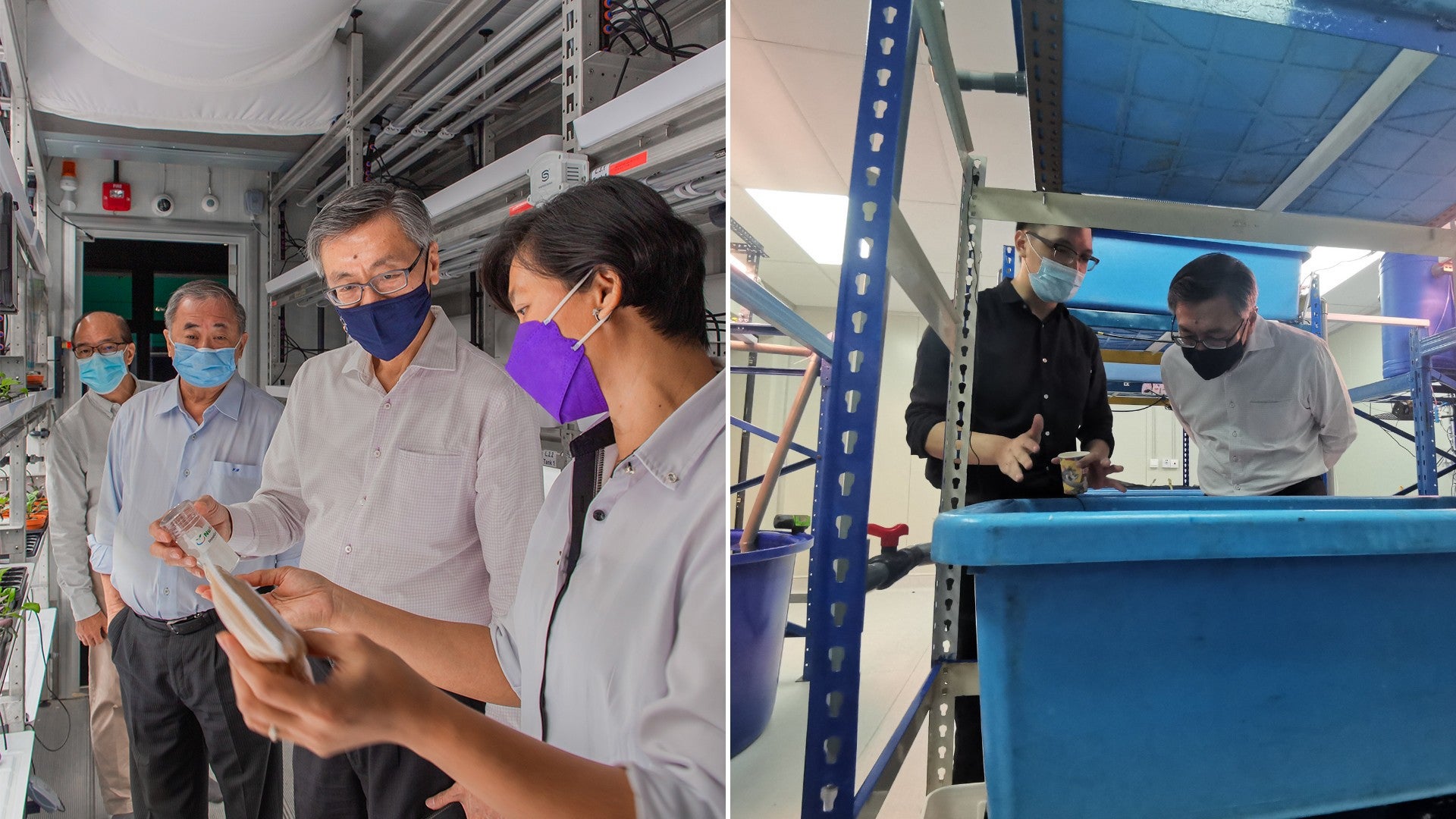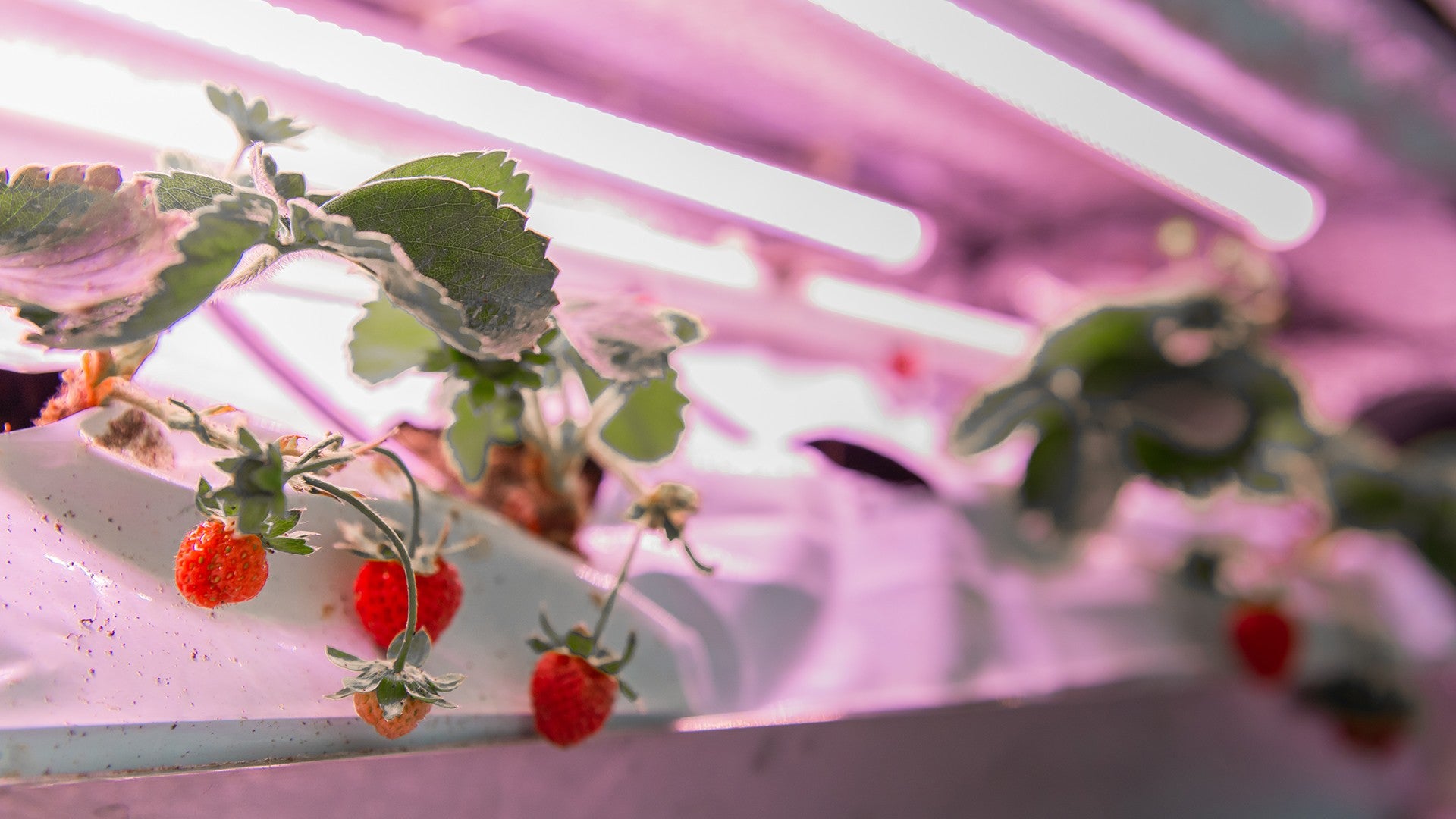Seeding innovation and opportunities in agritech
September 07, 2021
From left: Polybee’s founder Mr Siddarth Jadhay giving a demonstration on pollination by drones to NUS President Professor Tan Eng Chye, NUS Deputy President (Innovation & Enterprise) Professor Freddy Boey and NUS Enterprise Director Mr Brian Koh.
A stone’s throw away from the NUS campus, tucked in a shady spot within Singapore Science Park, lies one of the newest innovation and incubation facilities powered by NUS Enterprise – the NUS Agritech Centre.
Housed in the Cavendish building, the NUS Agritech Centre is a unique amalgamation of art and technology – a sandpit for researchers, entrepreneurs and visionaries to present challenges, experiments and explore market-based solutions in agriculture.
The establishment of this centre is in line with Singapore’s “30 by 30” goal which aims to produce 30 per cent of the population’s nutritional needs locally by 2030. The centre is designed to support start-ups from growth to post-harvest; building capabilities in serving up urban farming food options from lab to table.
“What I’m doing is to provide facilities at an affordable cost to our young and promising start-ups. That will hasten their companies’ capabilities, which by themselves would be very hard to do,” said Professor Freddy Boey, NUS Deputy President (Innovation & Enterprise).
“Increasingly, we are finding more NUS spin-offs from the Graduate Research Innovation Programme (GRIP) engaged in this area. We will very deliberately pursue agritech and urban farming as a theme across our venture creation programmes,” he added.
Conducive environment for growth
The centre is one of the first in NUS to provide such dedicated support for agritech start-ups using state-of-the-art tools and controls to provide an optimised infrastructure and environment for urban farming innovation and production.
Providing synergy for the centre is the nearby NUS Enterprise@Singapore Science Park, another NUS Enteprises’ incubation facility housing agritech start-ups as well as those focusing on foodtech, connected devices, environmental and health solutions. It also boasts a demo deck which offers start-ups of both facilities a conducive space for prototyping.

NUSoil’s co-founder, Dr Tan Wee Kee (pictured left, in purple mask) and REAPED’s founder, Mr Lim Yong Kiat (pictured right) introducing their technologies to NUS President Professor Tan Eng Chye.
Operational since July 2021, the centre welcomed its first batch of incubatees from:
- NUS Department of Biological Sciences’ laboratory specialising in functional genomics. Aiming to use genome-wide association studies to breed new vegetable varieties suitable for indoor farming, the team is gathering a large collection of varieties from around the world, including some that are not planted commercially. It is extensively phenotyping these varieties and variants, mapping their genomes, identifying desirable genes and markers for exceptional qualities (from yield rates, taste, quality and nutrition) and cross-pollinating the varieties to develop new varieties for indoor farming.
- NUSoil whose innovation, InnoGroTM, is a superabsorbent hydrogel that is derived from a by-product of the food production industries. This patented hydrogel has great water holding power, with a swelling capacity of 150 times.
- Polybee which builds small autonomous drones for pollination in those sectors of agriculture where the only way to do it is by hand. Its first two markets are indoor vertical farming and hybrid seed production.
- REAPED which makes urban shrimp farming easier, cheaper, and more energy efficient through sustainable urban aquaculture and aquaponics solution with automated shrimp hatchery and plant growth systems.
- ScentAnalytics which uses artificial intelligence sensing to detect early warning signs for disease Infection in controlled-environment agriculture (CEA). Its sensing element will allow multiple gases and vapour to be detected through one sensor where traditionally conventional sensors are designed to detect a single type of gas or vapour.
- Singrow which uses cutting-edge agrotechnology to grow premium fruits and crops. Its current key innovations include the first white strawberry variety developed in a tropical country, a faster indoor hydroponic strawberry cultivation method and a strawberry-specific hydroponic system.

The NUS Agritech Centre grows a wide range of delicious fruits and vegetables.
Spanning 800 square metres, the NUS Agritech Centre includes five Grow Zones in various sizes, two Precision Climate Zones, a Multipurpose Zone that can be converted in-situ to recycling waste water or as a cultivation area, a Technical Zone with germination chambers and specialised lab equipment for high-accuracy analysis, as well as Wet and Dry Washing Zones.
Some exciting features of the centre include:
- Integration of applied plant science, Internet-of-Things (IOT), data analytics and engineering. This will fast forward competitive research and technology translation for the start-ups. Temperature, humidity, carbon dioxide, oxygen, pH, plant nutrients and lighting can be precisely controlled and monitored anywhere with an internet connection, which is also a plus for safety measures during the Covid-19 situation. Multispectral imaging capability provides a real-time quantitative description of a targeted plant’s physiological, anatomical, biochemical and ontogenetic properties.
- Sustainability in urban agriculture where power consumption data is collected for individual subsystems in the centre to allow for machine learning, for example, to detect opportunities for energy savings and to train AI to detect early failure warnings in the sub-systems. The centre also allows for the recycling of waste water, enabling water conservation for validation and translation of filtration technology.
By NUS Enterprise
Source: NUS News


